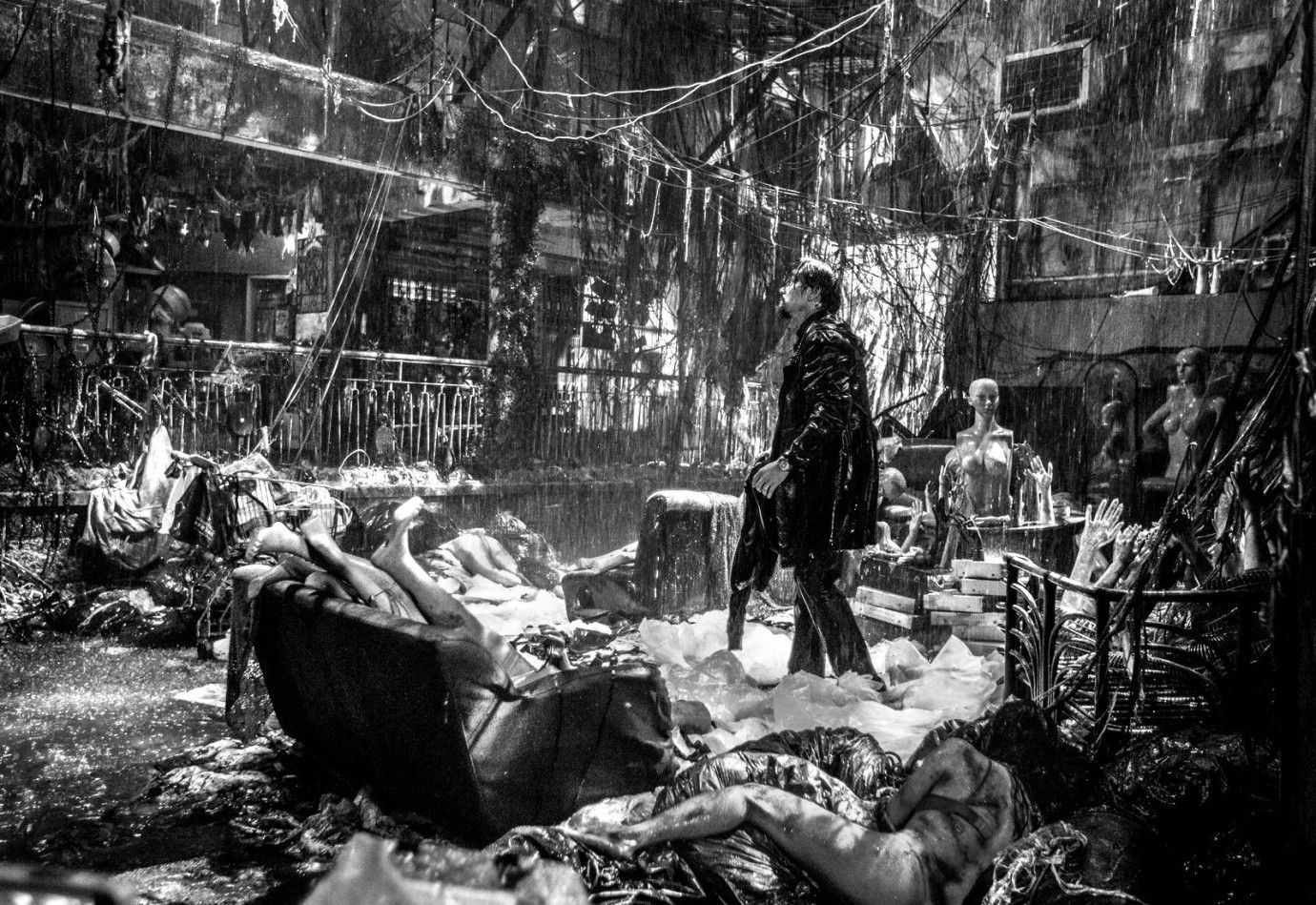Limbo (Soi Cheang, 2021)

Soi Cheang’s latest film might have been a continuation of the SPL series. He directed SPL 2, with the original’s director, Wilson Yip producing, while the two switched roles for the follow-up SPL: Paradox. Yip again produced Limbo, and it shares in common with those other two films a kind of obsession with bodily dismemberment, albeit this time not centered around the physique and star persona of Louis Koo. Limbo might have also been a Milkyway Image film, Johnnie To’s studio which produced two of Cheang’s finest movies, the paranoid psychodrama Accident and the slow motion car chase movie Motorway. Limbo’s crew features two longtime Milkway stalwarts in editor David Richardson, cinematographer Cheng Siu-Keung and screenwriter Au Kin-yee[1]. But Limbo isn’t really a Milkyway film either. Instead, it’s the apotheosis of what I’ve been calling the “moody Chinese noir”, films like The Wild Goose Lake, The Looming Storm or Lush Reeds, or, from the Hong Kong side, Paradox, Port of Call or The Brink. Dark, often cruel films where pessimism about Hong Kong and/or China’s future manifests itself in joyless worlds of brutal, nonsensical crime and endless torrential rainstorms.
Lam Ka-tung, another Milkyway veteran, plays the disheveled older cop who is saddled with a young by-the-book partner (Mason Lee, from Suburban Birds and Dead Pigs) as the two investigate a gruesome serial killer. Their Hong Kong is a monochrome world of abandoned alleys piled high and deep with garbage: bags of discarded food, broken chairs and cars, dismembered mannequins and young women. Their killer for some reason likes to chop off hands (in less serious times a writer might have given him a blackly comic nickname like “The Handyman”) in addition to raping and killing these poor young women. In a none-too-subtle metaphor the women, homeless prostitutes and drug addicts, have been tossed aside and ignored by society, like so much garbage.
Forced into helping the cops’ investigation is Wang To (Cya Liu), an ex-con and car thief who, years before, was driving while whacked out on drugs and ran over Lam’s wife and daughter, putting the one into a hopeless coma and killing the other. After a brief detour into out-of-control cop vigilantism, and the first of several intense and expertly crafted and filmed chase sequences (Cheang is nothing if not the best director of chases in Hong Kong today, the true heir to Ringo Lam), Lam and the girl settle into a kind of tacit arrangement: he might forgive her if she helps him solve crimes, but he’s gonna beat her up a lot and nearly get her killed along the way. Meanwhile, the young cop tags along trying in vain to get Lam to follow the rules while suffering from a really bad wisdom tooth ache (something something about the rot at the head of the system).
It all ends horrifically, of course, with the girl captured and tortured by the killer while the cops desperately try to track her down through literally tons of rainswept trash in warrens of back alleys and underground concrete chambers, revealed in all their hellish logic by Cheang’s frequent use of overhead shots, pinning his characters to the screen like rats in a maze. The film’s title hints at how we’re supposed to take all this misery: these people are all trapped in this in-between state, between forgiveness and repentance, and are suffering because of the irresolvability of their dilemmas. There’s a tiny glimmer of hope in the end, a brief smile, a walk into the sunshine, but it’s only barely convincing. But the unrelenting cruelty of Cheang’s Hong Kong is undeniably powerful. This is a film that really believes the end is nigh.
Au worked regularly throughout the 2000s, but aside from writing several of the segments of the upcoming all-star omnibus film Septet, she has only two writing credits since 2011’s Life Without Principle: a 2016 film called Sisterhood that was directed by Tracy Choi and which has an Assistant Writer credit for Norris Wong, the writer/director of last year’s My Prince Edward, and co-stars Fish Liew, who has a supporting role in Limbo; and a Korean film from 2013 called Cold Eyes (which is really just an adaptation of Au's 2007 Milkyway film Eye in the Sky). Considering that Septet has been in the works forever and Limbo seems to have wrapped shooting in 2017, I wonder what Au has been up to for the past several years. ↩︎
